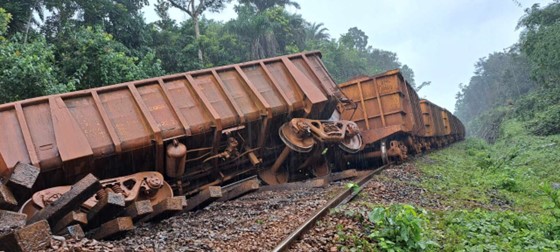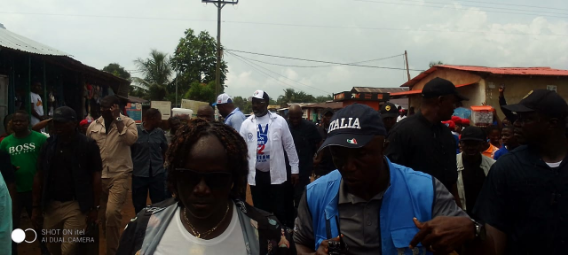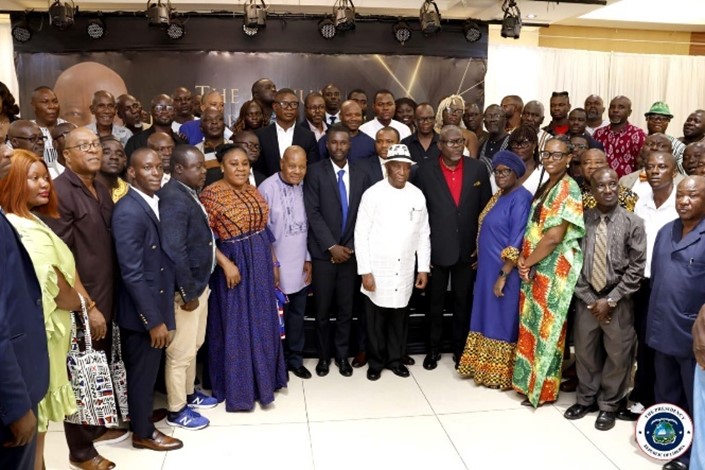
The Collaborating Political Parties Intellectual Response Bureau (COPPIRB), an auxiliary of the Collaborating Political Parties comprising the Unity Party (UP), the Liberty Party (LP), the All Liberian Party (ALP), and the Alternative National Congress (ANC), has requested for a signed and sealed copy of the contract signed between the World Food Program (WFP) and the Government of Liberia (GOL) pertinent to the COVID-19 Household Food Support Program (COHFSP).
COPPIRB noted that their request to access the document is backed by the 2010 Freedom of Information Act (FOI Law), specifically Section 1.4(b), which states, “Everyone has the right to the access of information generated, received and/or held by public bodies, subject only to such limitations as are necessary and narrowly established for reason of an equally or more competing public interest.”
In a letter addressed to Karla Hershey, Country Director, World Food Program (WFP), the group said, “As we strive to vehemently pursue a more dignified life for Liberians through public accountability and transparency, COPPIRB is pleased to officially request a signed and sealed copy of the contract that was signed between the World Food Program (WFP) and the Government of Liberia (GOL) pertinent to the COVID-19 Household Food Support Program (COHFSP).
“Due to the intricacies and/or the conflict surrounding this grave situation of US$9 million being paid to the WFP as operational cost, thousands of Liberians remain very concerned about this claim that was recently made by the government through the Ministry of Commerce. Hence, such claim has led to unquenched public doubt and suspicion.
“Recognizing that access to information is a fundamental right guaranteed under the Constitution of Liberia and the Universal Declaration of Human Rights as well as the African Charter on Human and People’s Rights, we therefore crave your indulgence to share with us a copy of the contract that was signed.
“COPPIRB is also cognizant that the 2010 Freedom of Information Act (FOI Law), specifically Section 1.4(b), states, “Everyone has the right to the access of information generated, received and/or held by public bodies, subject only to such limitations as are necessary and narrowly established for reason of an equally or more competing public interest.” Additionally, Section 1.4 (d) also states that the right to access information applies to private entities that receive public resources and benefits, engage in public functions, and/or provide public services, particularly in respect of information relating to the public resources.
“Based on the foundation of this FOI Law and its prudent interpretation thereof, the CPP-Intellectual Response Bureau wishes to also evoke the compelling force of this law to request the World Food Program to expeditiously produce a copy of the contract that it signed with the Government of Liberia (GOL).
“As you may be aware, Liberia was recently ranked the poorest country in the world by a report from USA Today and this country has since been severely victimized by the deadly COVID-19 pandemic, which has caused serious economic slowdown. The Bureau and Liberians in general deserve to know what actually happened to the US$30 million that was borrowed from the International Monetary Fund (IMF) to implement President George Weah’s ‘Stimulus Package’, which in our opinion has already failed. This US$30 million plus interest on loan will be paid by Liberians. Therefore, we deserve to know its usage.
“Minister Wilson Tarpeh, who chairs the COHFSP Steering Committee, stated before the Liberian Senate that US$20 million of the USD$30 million will go to Food cost, while US$9 million will go toward the operational cost. In another version from James Belgrave, Communication Officer, World Food Program, Rome, Italy, ‘The Government-led COVID-19 Household Food Support Program (COHFSP) has a total budget of US$30 million. This comprises the cost of the food basket (rice, beans and vegetable oil) as well as the cost of storing, transporting, and delivering the assistance to vulnerable households targeted under the program. A small percentage of the budget (around 6%) goes toward meeting essential minimum costs for WFP to deliver its life-saving assistance—this is a standard across where WFP works and it is in line with international standards of aid delivery.’ Accordingly, WFP says only 6 percent (1.8 million) was charged to GOL for Covid-19 Food distribution.”







